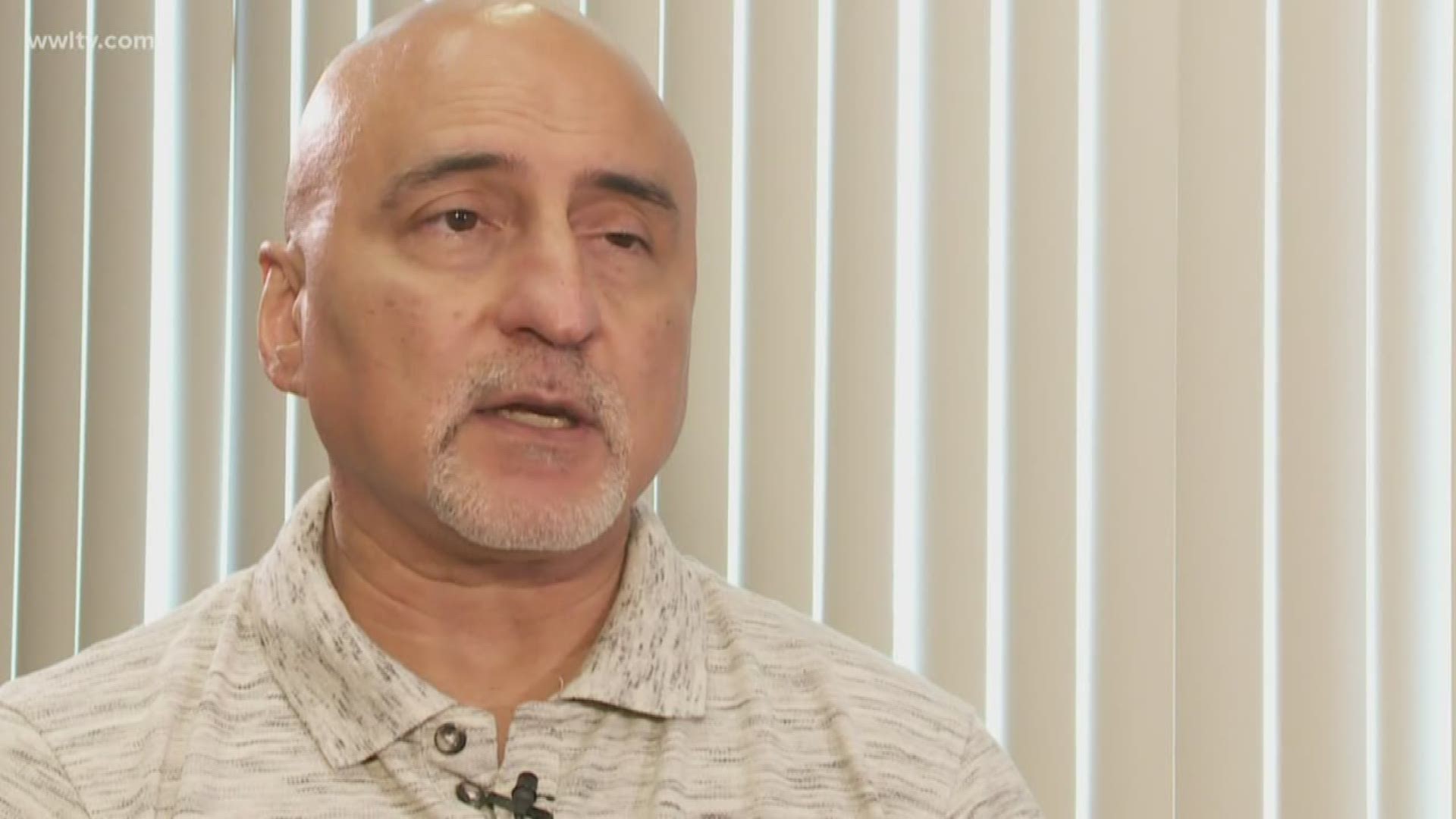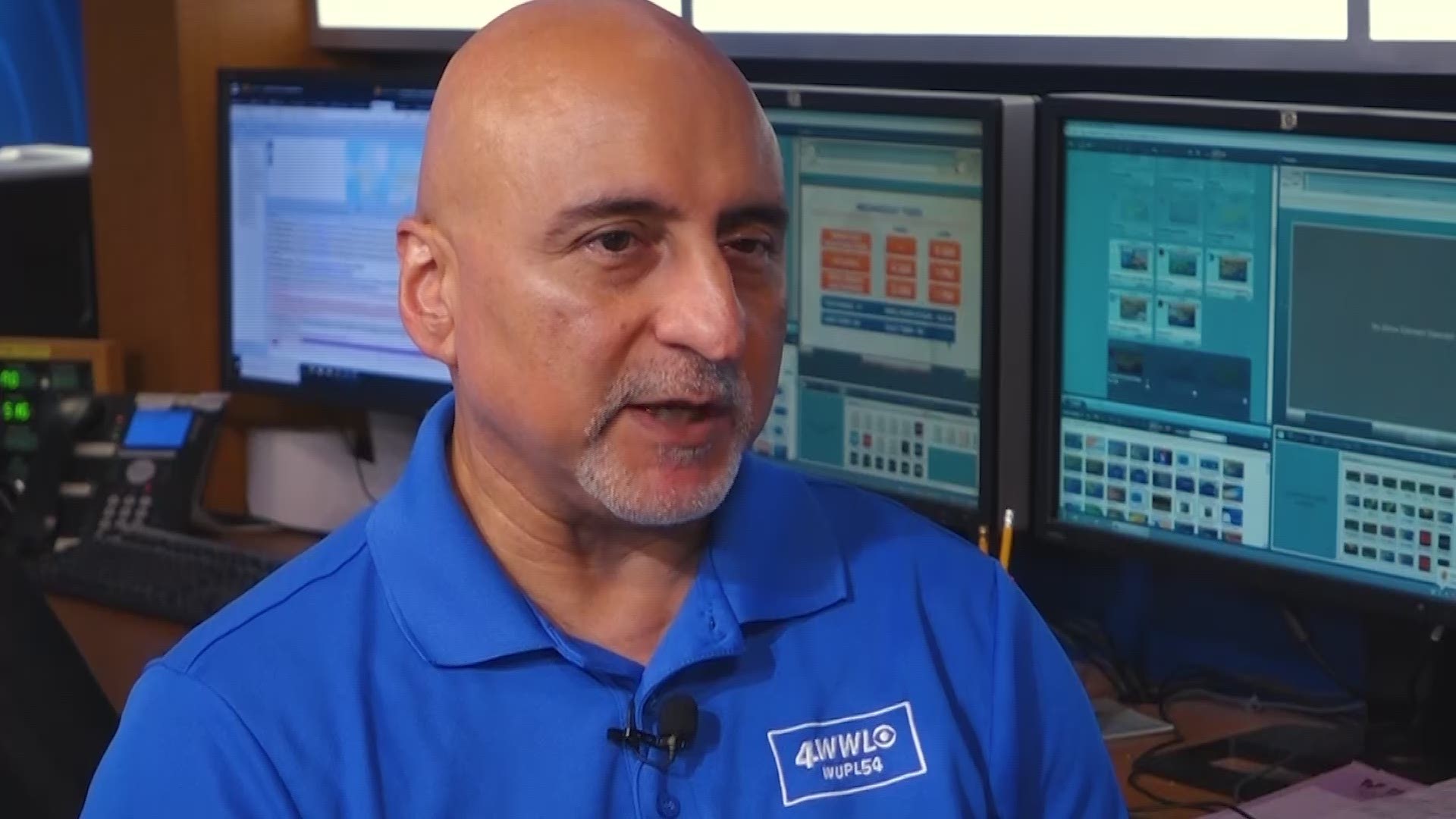NEW ORLEANS — WWL-TV Chief meteorologist Carl Arredondo recently revealed that Friday will be his last day at Channel 4.
He told us the surprising reason why. He is slowly losing his sight. He and his doctor recently allowed us inside the eye exam for a closer look at what Carl's been dealing with.
For nearly 30 years, and through some of our most difficult times, such as Hurricanes Katrina and Andrew, meteorologist Carl Arredondo has been our guide and the eyes into our future. But quietly behind the scenes, he's been going through a storm of his own.
Warning signs came early
"I went to an ophthalmologist and he sat me down and when he looked in, he said, 'You have to go to emergency surgery. Your retina's totally off the back of your eye,'" remembers Carl.
That was back in 1991, when he was only in his late 20s and working at The Weather Channel. Within two months, he suffered detachment and tears in his retinas in both eyes. Surgery reattached them.
"I had to lay on my side for, I don't know, might have been three or four weeks, to let that helium bubble sit. I had to not move very much from my side," he said.
To this day, it's changed his way of sleeping.
"Even to now, I can not sleep on my side. That was so uncomfortable. And then when the other eye did it, I had to be on the other side, so I don't sleep on my sides. I can't sleep on my sides. It's uncomfortable. Because of that experience, I've not slept on my sides."
A few years later, he got cataracts in both eyes. There was more eye surgery to remove them and implant artificial lenses. But even then, he could not have forecasted the most difficult of eye problems on the horizon.
Story continues below video
After several eye surgeries, more signs of trouble
Carl turned to Dr. Robert Ross, a vitreoretinal specialist and Assistant Clinical Professor of Ophthalmology at Tulane. When Mother Teresa needed cataract surgery in 1994, he was the assistant surgeon. Dr. Ross confirmed that Carl has a rare genetic disorder: adult onset Retinitis Pigmentosa or RP.
"Basically he has an inherited degeneration of the retina. The retina is the light sensitive membrane in the back of the eye, and in his situation his retina is progressively malfunctioning," explained Dr. Ross.
The little cells, that take in light, turn it into electricity and send it through the optic nerve so the brain can create the pictures of our world, are breaking down. But there is some light in Carl's tunnel vision. The RP right now, is mostly affecting the rods, or the cells around the sides of the retina, not the cells, or cones, in the center.
"In a sense that's good for him in that the center area of the retina, occupied by the cones, for him is less affected because of his genetic mutation. So he's able to see pretty darn good, but he's legally blind because his visual field has shrunk all the way down, like looking through two paper towel holders," said Dr. Ross.
'If you put your hand out, I don't see it'
"One of the things that I want everyone to know out there that has come across me, and this has happened, is that if you put your hand out to me, I don't see it. So if I seem rude in public and I walk right by you and don't say anything to you, it's literally because I do not see you," said Carl.
"Most patients with Retinitis Pigmentosa, it's not necessarily a scenario where they'll go totally blind. They can, and over time as it progresses, there's a higher chance, but in his case, he has more of a milder form because it's adult onset. And because it's relatively sparing his center retina cone function, there's much less of a chance that's going to happen," said Dr. Ross.
Dr. Ross is the first in the country to have a machine where he can take a look at each photo receptor in Carl's eyes. A scan of the retina 80,000 times a second, shows him incredible detail. He also can take a live look, with microscopic resolution, at the blood flow in Carl's eyes. The places on the sides where it is not flowing and the places in the center where it is.
"So this is new information right now looking at this," the doctor explains of the image that is produced.
So while taking fish oil can help slow the progression, there is no cure for Carl's type of RP, but Dr. Ross says this type of imaging, of the pigment changes and scaring, is a lens into the future.
Hope for the future
William Shakespeare wrote "The Eyes Are The Window To The Soul" and it is the bravery and acceptance, buried deep in Carl's soul, that even this latest technology can't show you, but Tuesday night we will, along with his one and only true concern.
"Everything else, I can adapt. I have people around me that can help me. I have a support group, so everything else is fine. That's the one thing that I may not be able to do. And that's the one thing that does bother me," Carl said.
We'll tell you what that concern is, that's weighing on his heart, Tuesday night at 10 and take a look at the extensive training Carl is doing to navigate his new life. We will also look at what his new job will be, and how so many others say he is an inspiration with the way he is meeting his new challenge.


